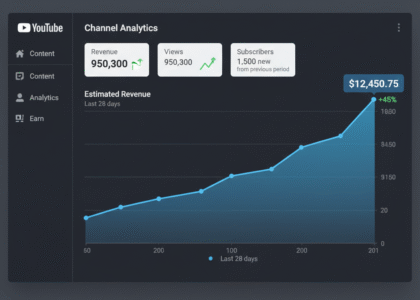Investing in pre-IPO (Initial Public Offering) stocks has gained attention as a lucrative way to enter the stock market early and potentially reap significant rewards. But what does it mean to buy pre-IPO stocks, and how can beginners navigate this opportunity? This guide will walk you through how to buy pre-IPO stocks, the benefits, risks, and steps to get started.
What Are buy pre-IPO stocks
Pre-IPO stocks are shares of a private company that are sold to investors before the company goes public. Companies do this to raise capital, and investors often see it as an opportunity to buy into a promising business at a lower valuation.
Why Consider Pre-IPO Investments?
- Potential High Returns: Early-stage investments can lead to significant gains if the company performs well post-IPO.
- Exclusive Opportunities: Pre-IPO stocks are typically offered to institutional investors or high-net-worth individuals, making it a unique investment opportunity.
- Portfolio Diversification: Adds an element of private equity to your investment portfolio.
How to Buy Pre-IPO Stocks

Step 1: Understand the Risks and Rewards
Before diving in, it’s essential to understand the potential risks and rewards of pre-IPO investments.
- Rewards: High growth potential, exclusive access to a growing business, and lower purchase prices compared to post-IPO valuations.
- Risks: Lack of liquidity (you can’t sell the shares easily), potential for the company to underperform, and limited financial transparency since private companies are not required to disclose detailed financials.
Step 2: Identify buy pre-IPO stocks
Finding pre-IPO opportunities isn’t as straightforward as buying public stocks. Here’s where to look:
- Private Equity Platforms: Platforms like Forge and EquityZen specialize in connecting investors with private company shares.
- Startup Investment Platforms: Websites like AngelList or SeedInvest allow accredited investors to access early-stage investments.
- Networking: Build relationships with financial advisors, venture capitalists, or company insiders who may have access to pre-IPO deals.
Step 3: Check Eligibility Requirements
Pre-IPO investing often comes with eligibility requirements. Most platforms require you to be an accredited investor, meaning you need:
- An annual income exceeding $200,000 ($300,000 with a spouse), or
- A net worth of over $1 million (excluding your primary residence).
However, some platforms are beginning to offer opportunities to non-accredited investors through crowdfunding options.
Step 4: Research the Company Thoroughly

Investing in pre-IPO stocks means taking on significant risk, so thorough research is essential. Consider:
- Business Model and Market Position: Does the company have a sustainable business model and competitive advantage?
- Financial Health: Review financial statements and growth metrics if available.
- Management Team: A strong leadership team often indicates a higher likelihood of success.
- Industry Trends: Is the company in a growing or declining industry?
Pro Tip: Use platforms like Crunchbase or PitchBook for detailed company and industry insights.
Step 5: Work with a Broker or Investment Advisor
Navigating pre-IPO investments can be complex, so working with a financial advisor or broker specializing in private equity can be invaluable. They can:
- Provide access to exclusive deals.
- Help assess risks and rewards.
- Assist with regulatory requirements and documentation.
Step 6: Prepare for Long-Term Commitment

Investing in pre-IPO stocks requires patience. You may need to hold the shares for years before the company goes public or until you find a secondary market buyer.
Benefits and Challenges of buy pre-IPO stocks
Benefits
- Early Access: Get in before the stock becomes publicly available.
- Potential for High Returns: Significant upside if the company performs well.
- Exclusive Opportunities: Access unique deals that aren’t available to everyone.
Challenges
- Limited Liquidity: Selling pre-IPO shares can be difficult.
- Higher Risk: Private companies are more prone to failure compared to established public companies.
- Complex Process: Requires navigating regulations, eligibility requirements, and thorough research.
Internal Resources for Better Financial Decisions
Check out these resources on GetCashVibe to complement your pre-IPO investment strategy:
- How to Build a Diversified Portfolio
- Tips for Managing Investment Risks
- Beginner’s Guide to Stock Market Investing
External Resources to Explore
For more insights on pre-IPO investing, consider these trusted platforms:
- SEC Investor Bulletin: Pre-IPO Investing
- NerdWallet’s Guide to Alternative Investments
- Morningstar: Private Equity Insights
Conclusion
Investing in pre-IPO stocks can be a rewarding way to diversify your portfolio and gain access to high-growth opportunities. However, it requires careful research, patience, and a clear understanding of the risks involved.
Start small, work with trusted platforms or advisors, and keep learning about the nuances of private equity investments.
Ready to take control of your financial future? Discover more tips and strategies on GetCashVibe today!






